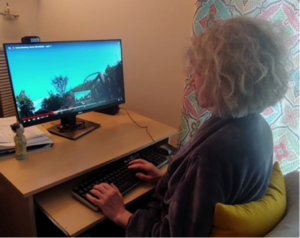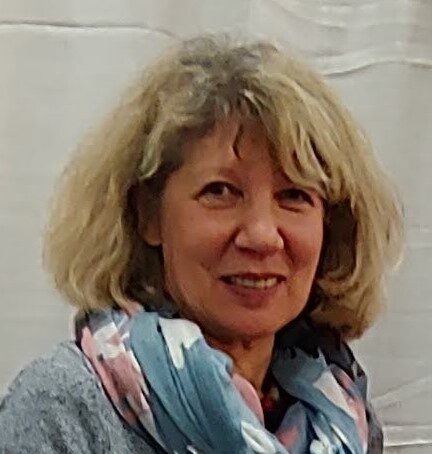 After working directly with physical collections in the library for more than twenty years, when we began telecommuting due to COVID-19 I could not even imagine how to do it from home or what work would be best to do. My position is with the Library Collection Services team, and some of my at-home work is indeed related to library collections, but my knowledge of Russian and Ukrainian has allowed me to be helpful to other areas of NEHGS as well. Occasionally over the years I have translated some records for genealogists, but now I do translation daily and work on several documents at once, such as Hebrew Immigrant Aid Society documents for the Wyner Family Jewish Heritage Center (JHC), guides and brochures for the Education team and JHC, and descriptions of the art objects on display in our building – and more documents are on the way.
After working directly with physical collections in the library for more than twenty years, when we began telecommuting due to COVID-19 I could not even imagine how to do it from home or what work would be best to do. My position is with the Library Collection Services team, and some of my at-home work is indeed related to library collections, but my knowledge of Russian and Ukrainian has allowed me to be helpful to other areas of NEHGS as well. Occasionally over the years I have translated some records for genealogists, but now I do translation daily and work on several documents at once, such as Hebrew Immigrant Aid Society documents for the Wyner Family Jewish Heritage Center (JHC), guides and brochures for the Education team and JHC, and descriptions of the art objects on display in our building – and more documents are on the way.
Most challenging, and pleasant at the same time, was translating a video for a case from the Research Services team. In the video, three women from a Ukrainian village are talking about their families and neighbors. Yes, it was a real pleasure during “shelter in place” to see a typical, picturesque Ukrainian village in summertime and listen to three inhabitants talking easily with the interviewer. I know Ukrainian pretty well, but there are many dialects, and it was not easy to translate what these people were saying.
[It] was a real pleasure during “shelter in place” to see a typical, picturesque Ukrainian village in summertime and listen to three inhabitants talking easily with the interviewer.
I used to live in the eastern part of the country, in Kharkov, a city near the Ukrainian-Russian border, where people speak so called “Syrzhik,” a strange mix of Russian and Ukrainian. The women in the video spoke another dialect, influenced by different languages of western Europe. Also, their way of speaking was different: fast, emotional, and flowing very naturally (very different from formal language). When words specific to this region sounded unfamiliar, I called my friend, who used to live there, and she translated them from western Ukrainian to eastern Ukrainian. It was a ten-minute video, and only three minutes contained genealogical information, but the client wanted to know everything that the women said, and I did my best to get close to the original.
Working from home has given me an opportunity to discover new fields to work on and enjoy, and new ways in which I can help NEHGS and its members.
Share this:

About Olga Tugarina
Olga Tugarina, originally from Kharkov, Ukraine, was the NEHGS Library Collection Services Assistant until 2020. She received her B.A. in Metallurgical Engineering at Kharkov Polytechnical Institute. She emigrated from Ukraine to America in 1997. In 2016 Olga started her family genealogy, based on her own recollections. Her interests: Arts.View all posts by Olga Tugarina →